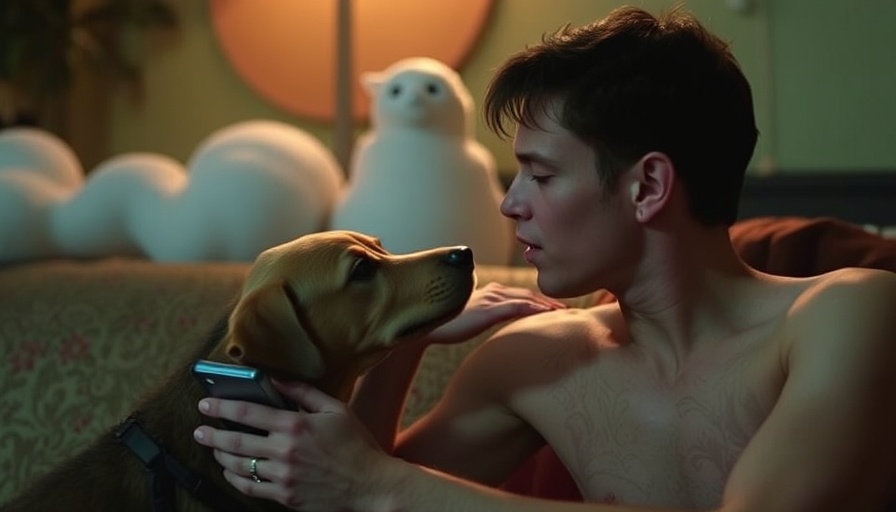
Celebrating Queerness: A Dive into LGBTQ+ Cinema
As we step into a new era of cinema, queer representations are no longer relegated to the sidelines but have taken center stage, weaving into the rich tapestry of global film. A recent piece by The Guardian highlights the twenty-five best queer films of the century so far, offering a variety of stories that resonate not just within the LGBTQ+ community but across the cultural spectrum. These films portray the struggles, joys, and complexities of queer life, reflecting a significant shift in societal attitudes and artistic expression.
From Romance to Realism: Notable Films That Define the Genre
Among the standout films is “Portrait of a Lady on Fire” (2019), celebrated for its powerful depiction of a lesbian love story in 18th-century France. Directed by Céline Sciamma, this film has been dubbed a modern classic, offering an intimate look at love devoid of typical power dynamics. The passion and artistry displayed in the film reveal a level of sincerity and depth that many viewers find both poignant and relatable, contributing to its resonance as a contemporary queer narrative.
Similarly, “Stud Life” (2012) presents a rich narrative that celebrates Black British queerness while exploring friendships within the LGBTQ+ community. Campbell X’s debut film is celebrated not only for its love story between a butch stud and her femme partner but also for its broader message of queer solidarity and community, enriching the dialogue around intersectionality in queer cinema.
Embracing Diversity: Exploring Intersectionality in Queer Films
Intersectionality is a crucial theme in many of the films mentioned in The Guardian’s list, such as “Diamantino” (2018), which caters to a diverse experience through a blend of soccer fanaticism and parody. This whimsical narrative plays with tropes, utilizing humor to navigate serious themes like nationalism and the refugee crisis, demonstrating that queer cinema can spark conversations on multiple social issues.
The importance of this intersectional perspective cannot be understated. As cinema continues to evolve, filmmakers are increasingly crafting stories that reflect the multifaceted identities within the LGBTQ+ community, highlighting the richness of queer experiences through engaging narratives.
Connecting with the Audience: The Human Element of Storytelling
For those navigating their identities within the digital world, these films offer a sense of belonging and affirmation that many digital nomads are seeking amidst global travel. The relatability of these characters allows audiences, regardless of sexual orientation, to find pieces of themselves in these stories. “Keep the Lights On” (2012), based on Ira Sachs's own experiences, presents a raw and unfiltered look at love, addiction, and heartbreak, fostering a connection that resonates deeply with viewers who have faced similar challenges.
The Future of Queer Cinema: Trends and Predictions
The recent surge in queer storytelling indicates a promising trajectory for the future of cinema. As film festivals and awards shows increasingly recognize queer narratives, we can expect a broader diversity of voices and stories to emerge. This shift not only fosters representation but also encourages greater understanding and empathy among audiences—essential for creating more inclusive societies. As digital nomads share their journeys around the world, they can also advocate for diverse cinema, enriching their perspectives through art that reflects a global community.
Take Action: Support Queer Cinema
As viewers, you have the power to influence what is produced in the film industry. By supporting queer cinema—through attending film festivals, sharing films on social media, or simply discussing them with friends—you can contribute to a culture that values diverse narratives. In this age of digital nomadism, connecting over film not only deepens our understanding of the LGBTQ+ community but also creates community bonds transcending borders. Embrace queerness in cinema and see how it reflects back at us the stories of humanity.
 Add Row
Add Row  Add
Add 




Write A Comment